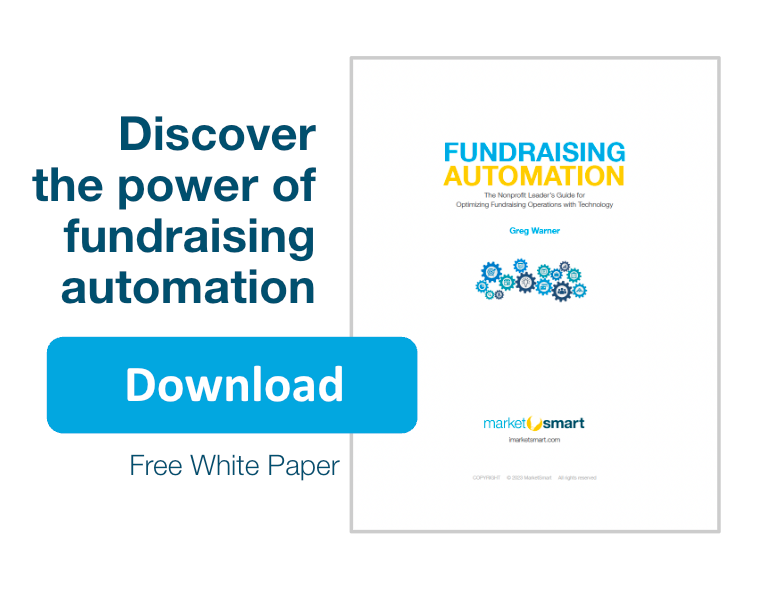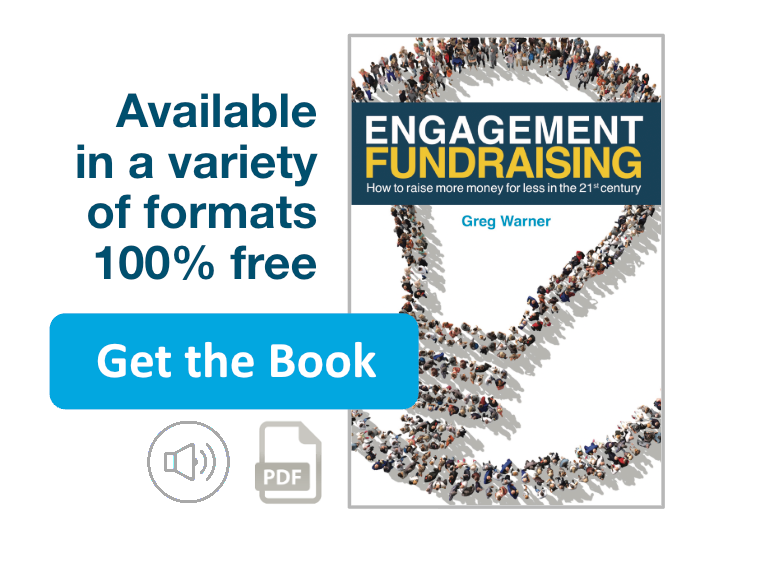A basic marketing precept is to “know your audience.”
As a major gifts officer or fundraiser, your audience is wealthy donors. How well do you understand them? Part of understanding them is to consider why tax deductions make such a difference in their decision to give a major gift.
Let’s take a brief look at wealthy donors, why they give large gifts, and how tax deductions play into that decision. We begin with a clarification of what a tax deduction is not.
Tax Deductions Are Not a Motivation to Give
If you look at giving as a cost, then you see tax deductions as a way to reduce that cost. So tax deductions do not motivate the gift. They just make it easier.
And let’s be honest – giving is a cost.
No matter how beneficial the act of giving can become from a tax perspective, it is still financially smarter to give nothing. Even if someone gives $500,000, but gets a tax deduction of $490,000, they would still have $10,000 less than if they gave nothing.
So, no one decides to give because of the tax deductions.
Why does this matter?
Because you can’t use tax deductions to persuade someone to give if they aren’t already inclined to do so. Something else motivates them to give. The tax deduction functions to make it easier to follow through on that decision. See the difference?
Research on Tax Deductions
Dr. Russell James has conducted numerous experiments into major gifts fundraising. In fact, he has focused so much of his life’s work on this that he was selected for the National Association of Charitable Gift Planners Hall of Fame in 2021.
He knows his stuff.
In one experiment, he tested these two phrases in major gifts fundraising:
“Avoid capital gains tax by making a gift of stocks or bonds to charity”
“Make a gift of stocks or bonds to charity”
The only difference between these phrases is the opening part about avoiding capital gains tax. And yet, major gifts fundraising campaigns that used that phrase saw more gifts, and bigger gifts, and this included gifts from the sorts of non-cash assets you really want to start reaching, such as:
- Donor advised funds
- Charitable remainder trusts
- Charitable gift annuities
- Retained life estates
This is the big money. Beyond writing a simple check.
And that one added phrase motivated wealthy donors to tap into these assets so they could give larger gifts.
Why? Here are a few reasons:
Wealthy People Like to Reduce Costs
Someone giving five-, six-, or seven-figure gifts cares very much about a tax deduction, and their advisors do too. They are deciding to part with a large sum of money, and for the most part, they get nothing in return. They are just giving it away.
Tax deductions appeal to wealthy people because they see this as a way to reduce the cost of giving.
They want to give. And if the motivation is strong, they want to give a lot. But desire does not always align with reality. The tax deduction makes it easier to fulfill the desire to give that is already present.
Just throwing out some random numbers to make this concrete:
Giving $100,000 but then getting $20,000 of that back on your taxes is a far better proposition than giving $100,000 and getting nothing back – no matter how much you care about the organization you’re giving to.
Where does this notion come from, that wealthy people should ‘just give,’ and not care about receiving any financial benefits? Major gift officers need to expunge such thinking if it is present.
Wealthy People Like to Avoid Losses
When you’ve worked hard to amass a sizable fortune, let’s say $5 million or more in assets, you tend to look unfavorably on situations that might cause you to lose large portions of it.
But, wealthy donors also want to give, because they are motivated by many of the same desires to help as the rest of us. And their wealth affords them the opportunity to make a much larger financial impact. A wealthy donor very much wants to do that, because they want to advance their personal hero story.
Tax deductions thus offer the best of both worlds – giving a large gift while avoiding losses.
Cost Is a Feeling, Not a Number
A large cost hurts more than a small cost. This is true for everyone. Paying $2000 to fix a leaking water heater hurts more than paying $200 for a new door.
For a wealthy donor, the size of the cost is the only difference. To them, giving $5000 might be something they can do effortlessly. But if that’s true, then their capacity to give is far greater than that.
As a gift officer, you want them to give the largest gift they can – something that even stretches them a bit. Something that takes some risk, makes them think twice, gives them a moment of pause as they ask themselves, “Should I really do this?”
That’s the kind of gift you want.
But that size of a gift hurts, because cost is a feeling. The tax deduction reduces the pain of giving a costly gift.
Tax Deductions Can Be Part of the Donor’s Story
As Dr. James has concluded, the most fundamental, core emotional reason donors give is to advance their own personal hero story.
The more you can tap into that, the more gifts you will win, and the bigger they will be.
Why? Because story is powerful. Story is about emotion, not logic. It taps into your inner thoughts and feelings. It calls out your identity – how you see yourself. Tying major gifts to a person’s life story should be the number one goal of every major gifts fundraiser.
What makes a good story?
There are six core elements of every great story.
One of those is being faced with a challenge, something difficult that is worth pursuing even if it costs you. Another is the opposition, having to overcome some sort of enemy or barrier.
A tax deduction fits into this story as a means of overcoming the opposition and meeting the challenge.
Imagine a wealthy donor who really cares about your mission and wants to make a big impact. But the size of that impact will come at a cost. It’s a hard decision. Sure, they could settle and give less, but that wouldn’t be a heroic gift, and they know it.
A tax deduction helps them push through that challenge and the fear behind thoughts like, “Am I giving too much? Should I really do this?”
The tax deduction is like that clever solution the hero finds in the nick of time that enables them to escape certain doom.
Sure, maybe you want to leap off a building in a single bound to save the city. But if you could do the same thing just as easily by taking the elevator, wouldn’t that be easier?
Incorporate Tax Deductions in the Wealthy Donor’s Story
Again, no one gives purely because of the tax deduction. But as the experimental data you saw earlier reveals, tax deductions can play a large influence in the decision to give, including when to give, and how much.
Work this in to the story you are helping your wealthy donors tell about themselves, and it can lead to much larger gifts.
Related Resources
- The Law and Taxation of Charitable Gift Planning: An Online Series presented by Dr. Russell James
- How To Use Numbers To Inspire More Giving (and How You Should NOT Use Them)
- How to Reduce the ‘Cost’ of Philanthropy So Major Donors Give More
- The Greatest Worry of Newly Wealthy Families – and How Major Gift Officers Can Help




